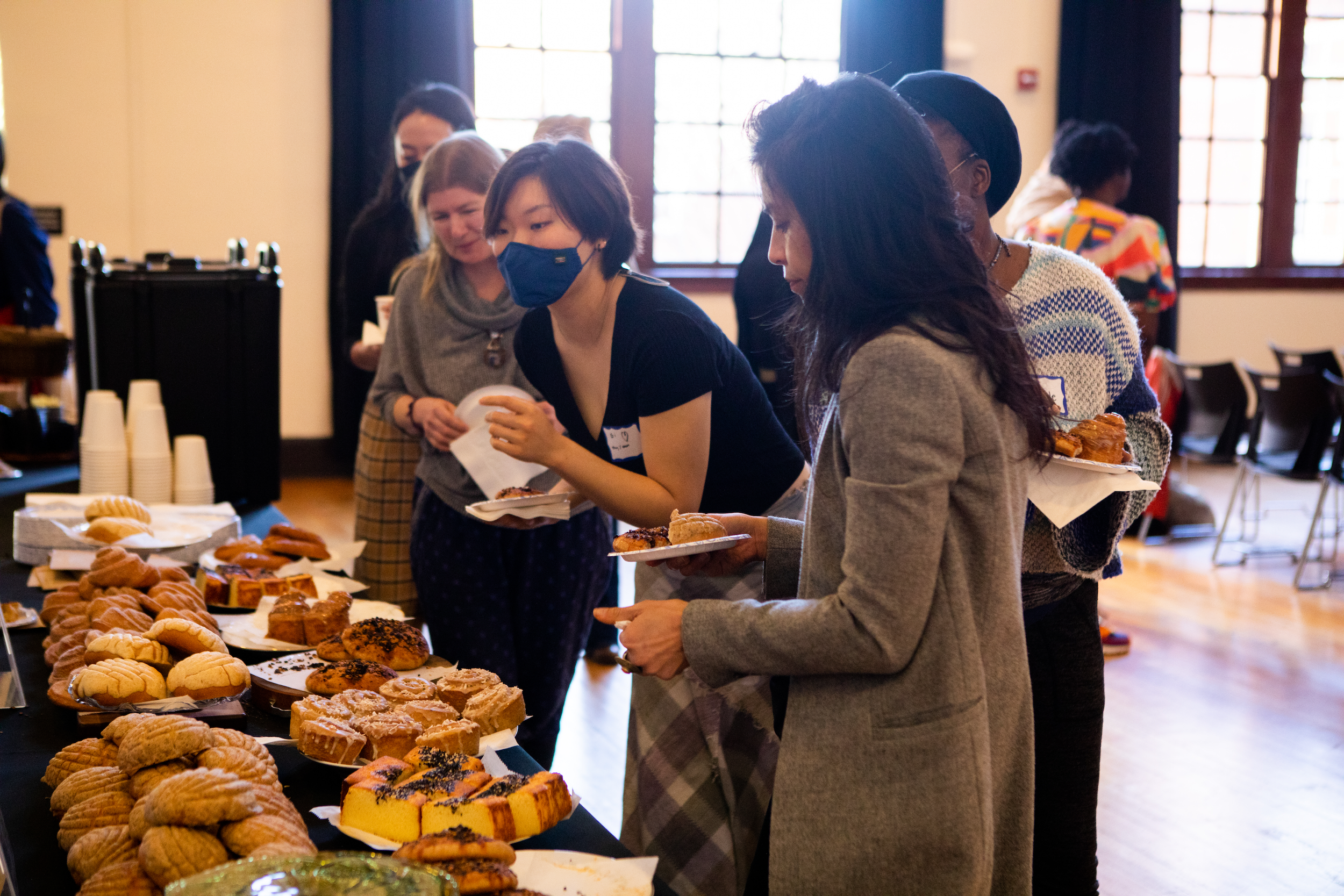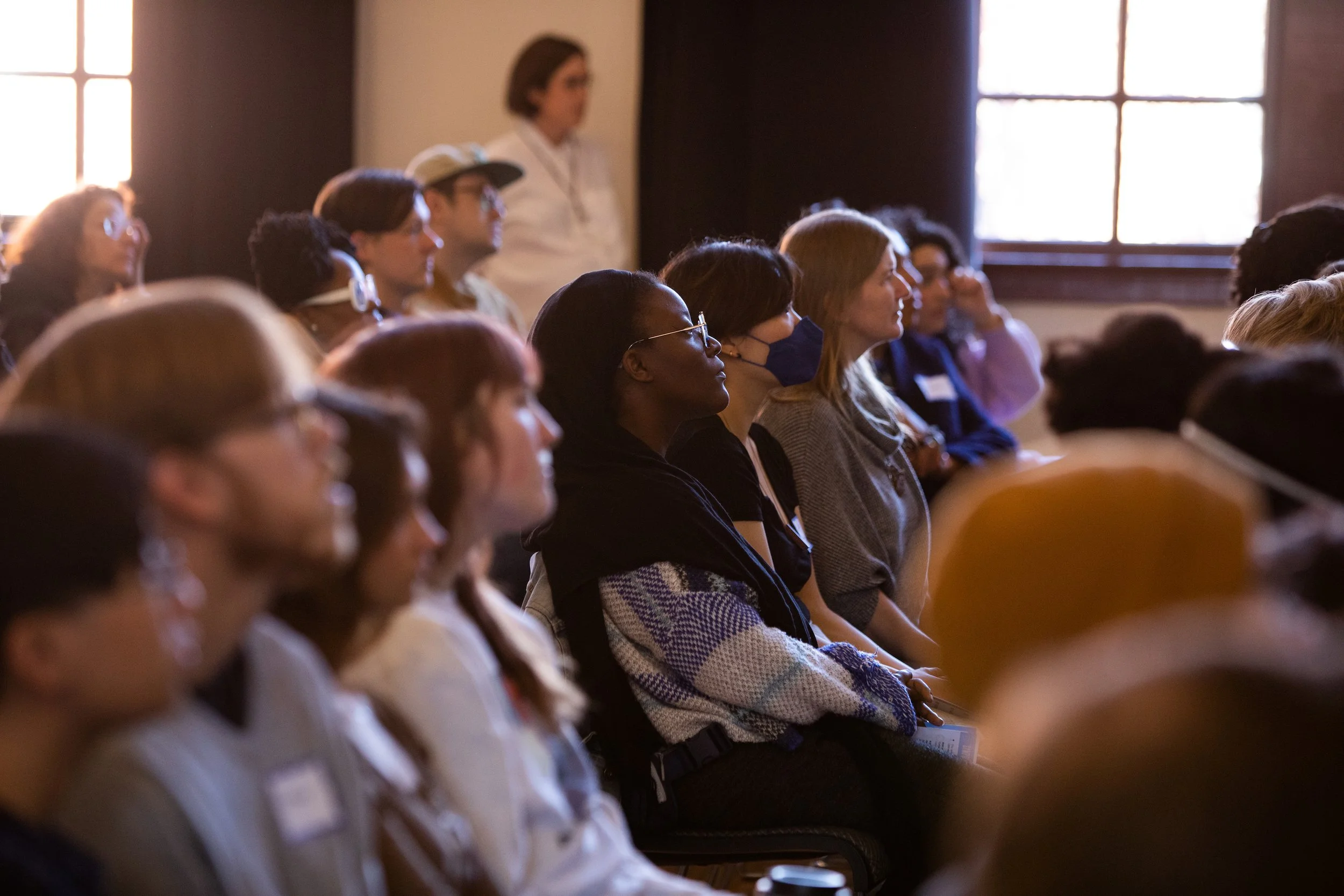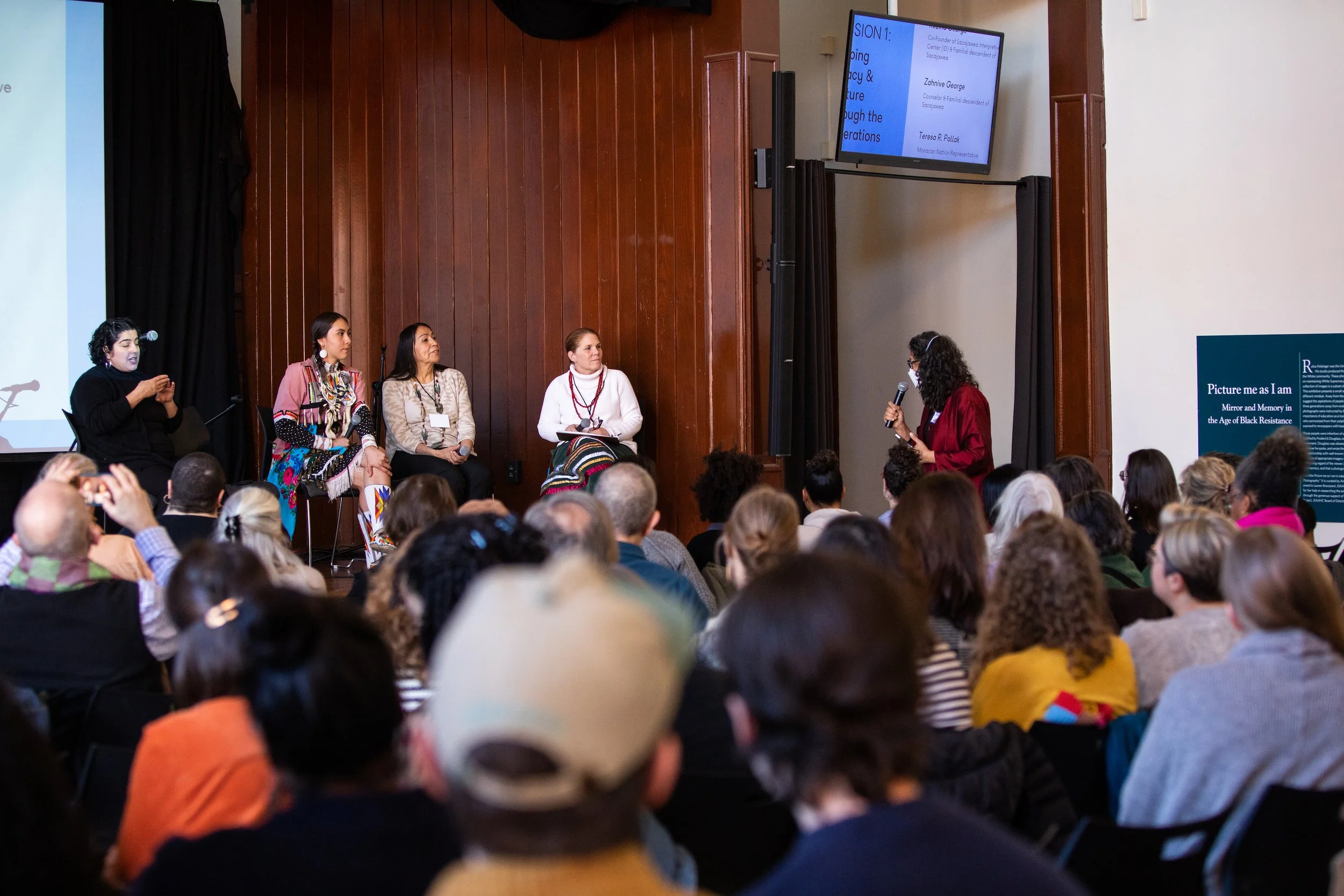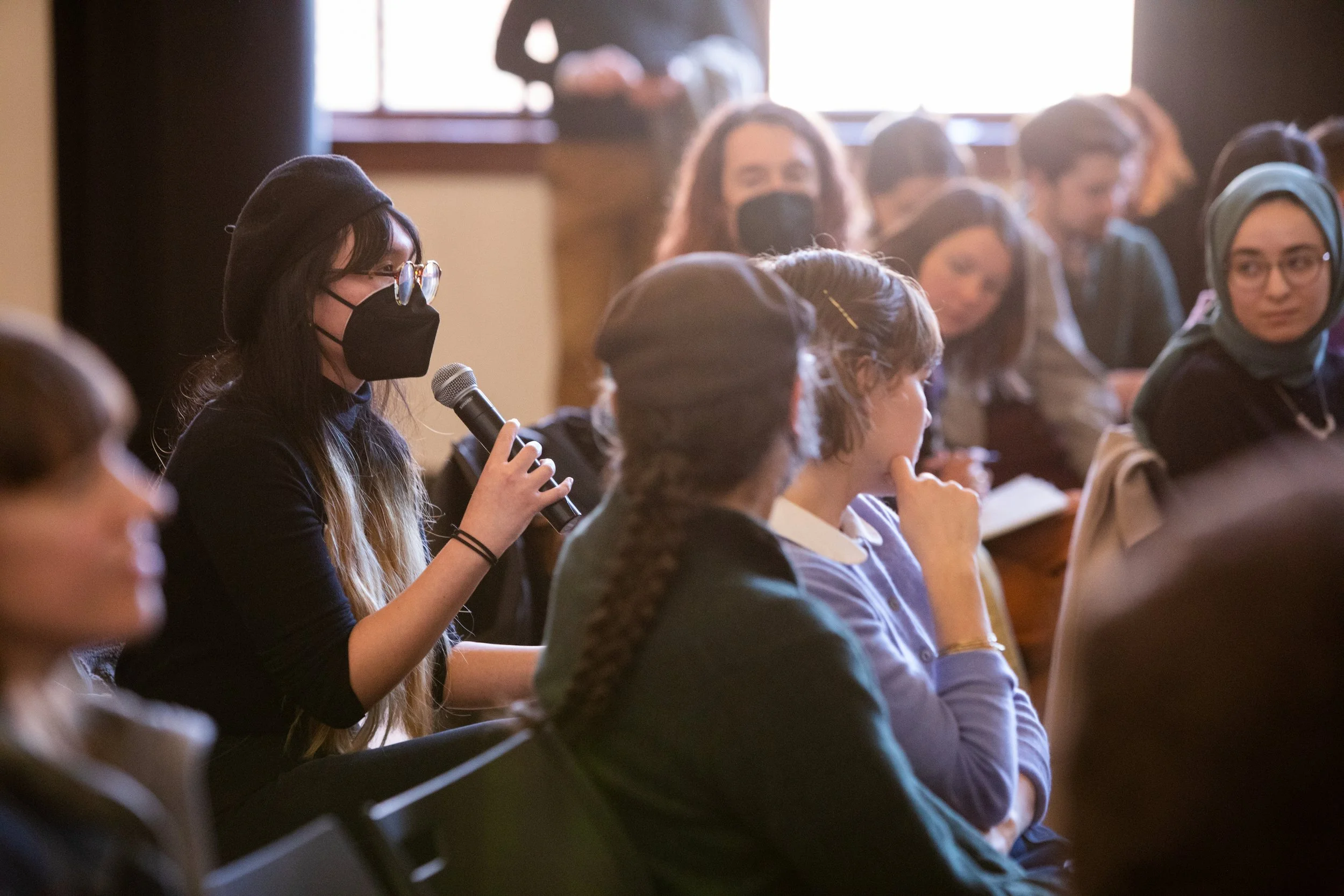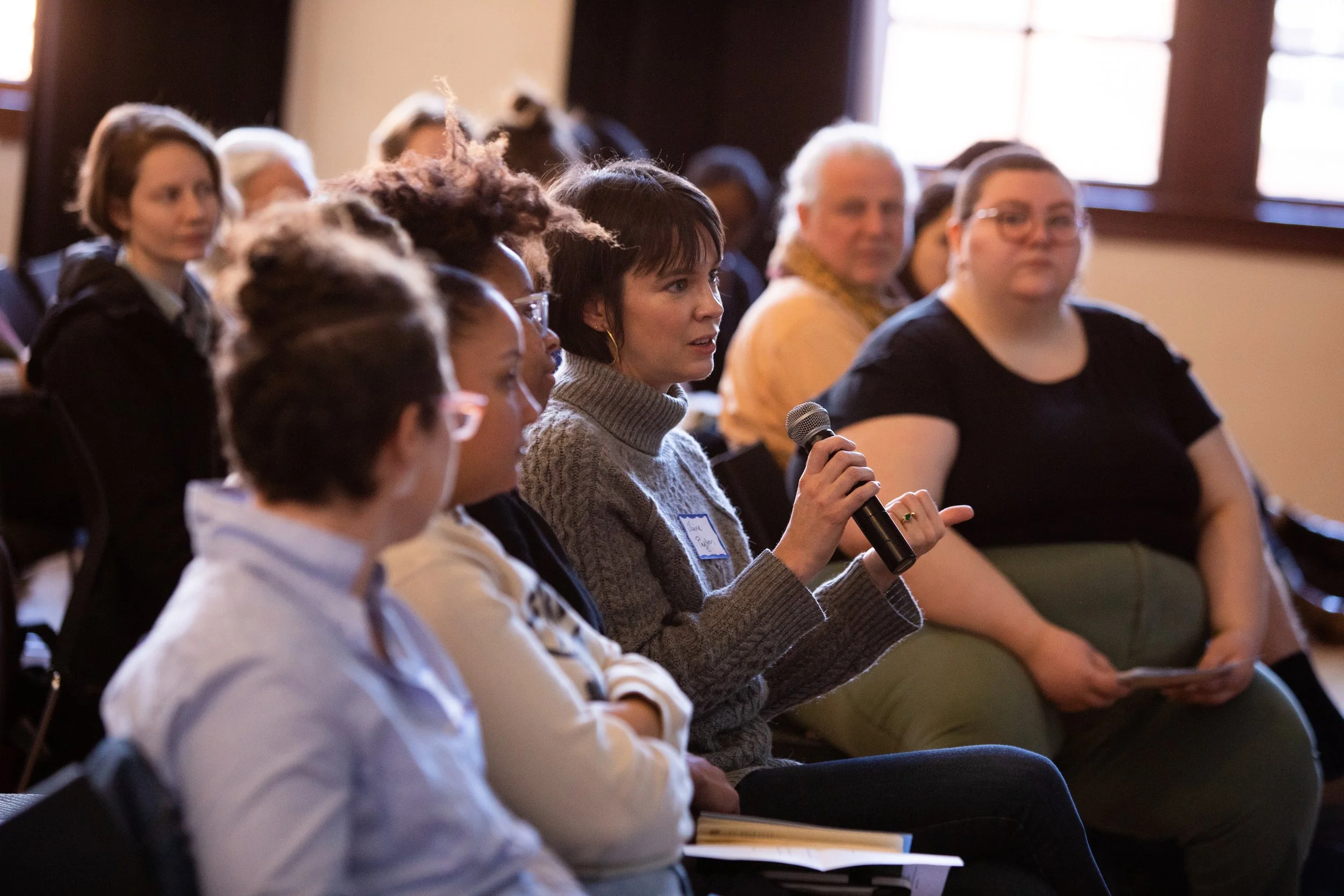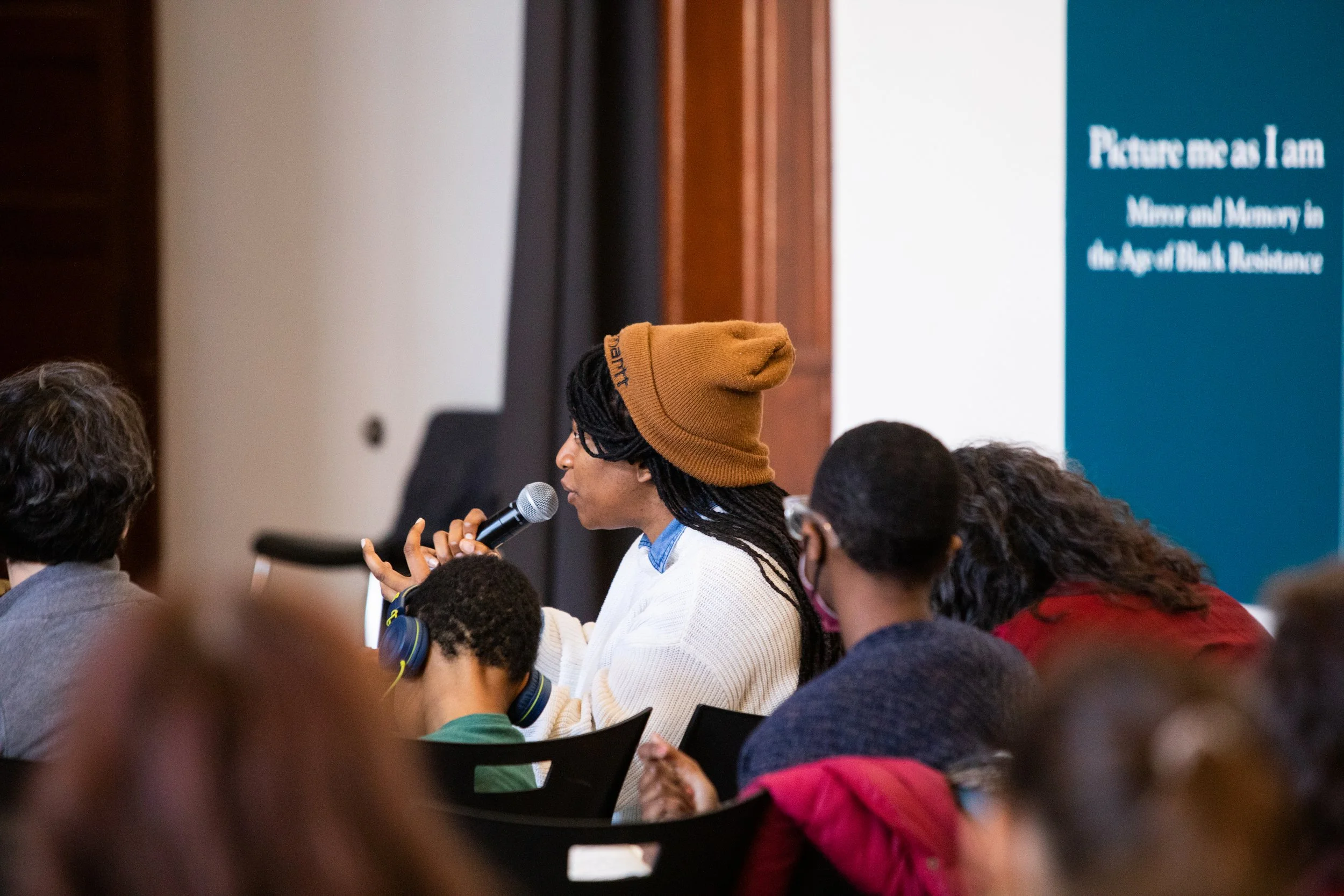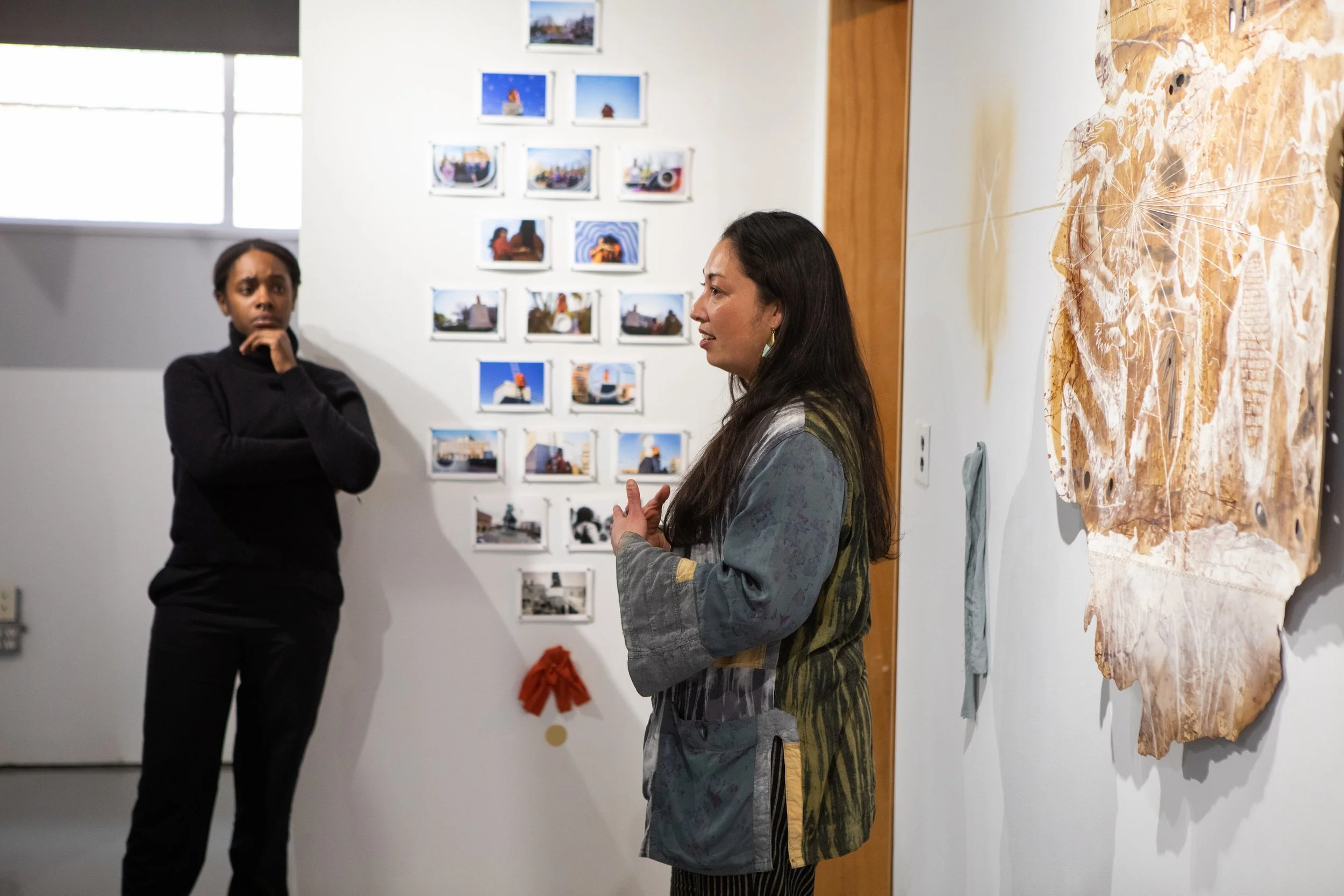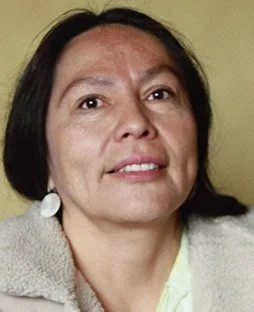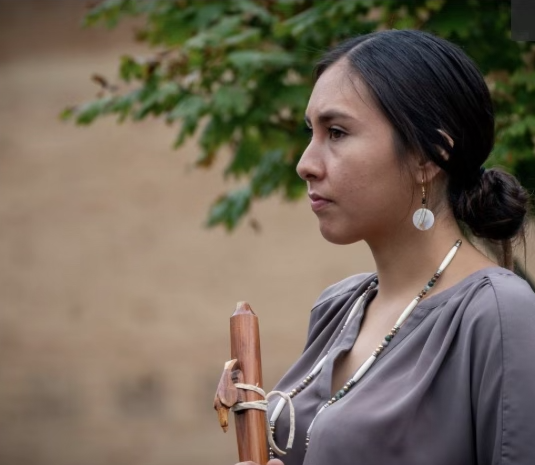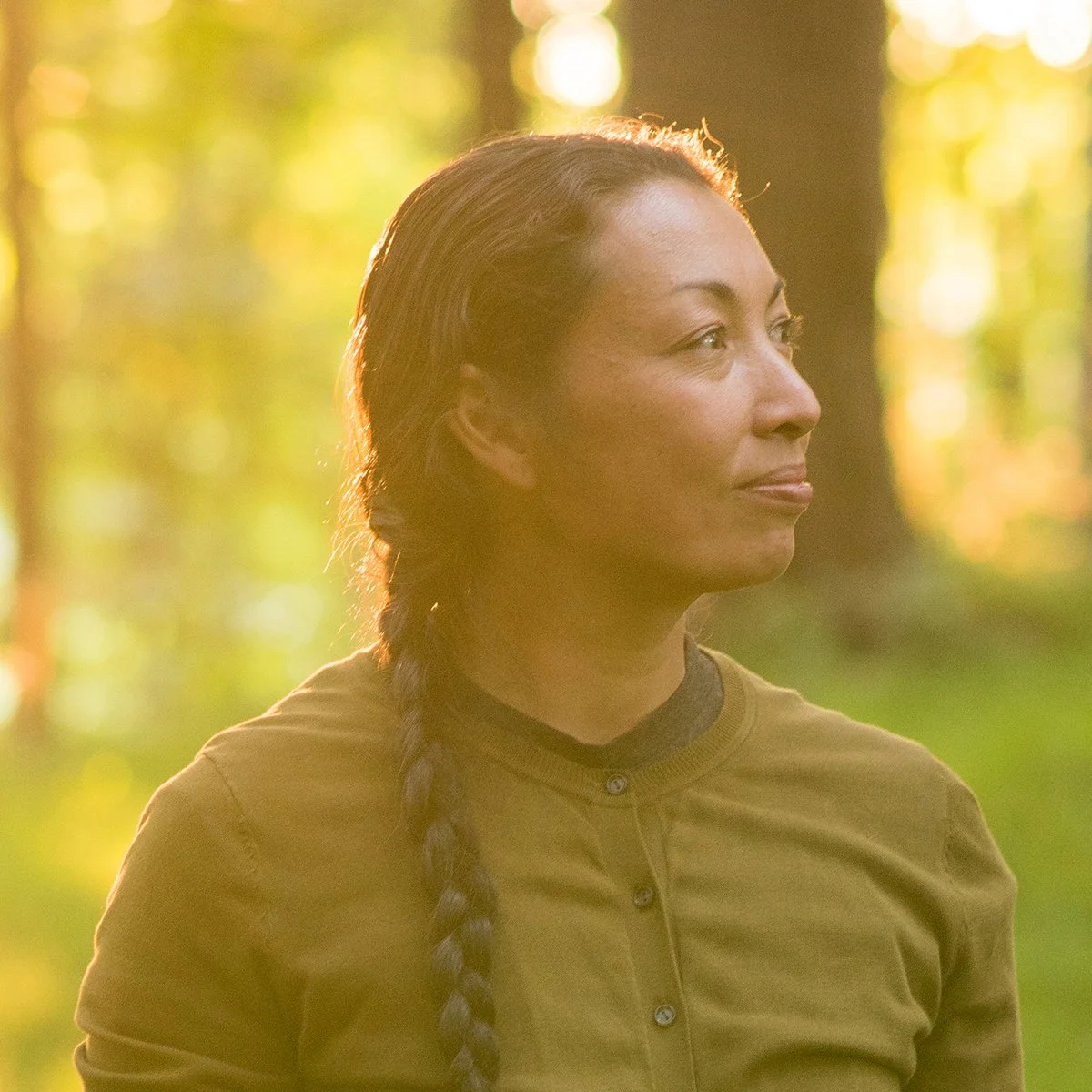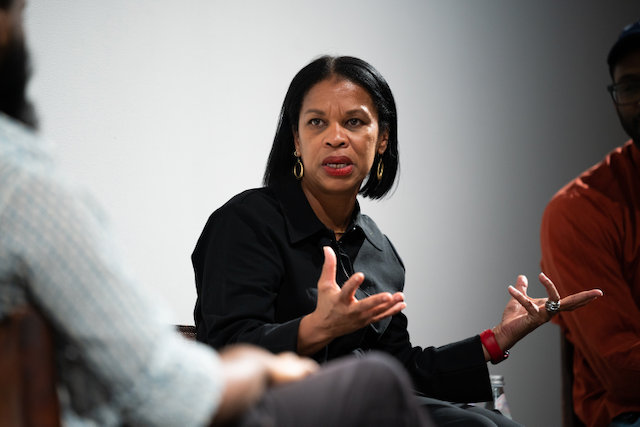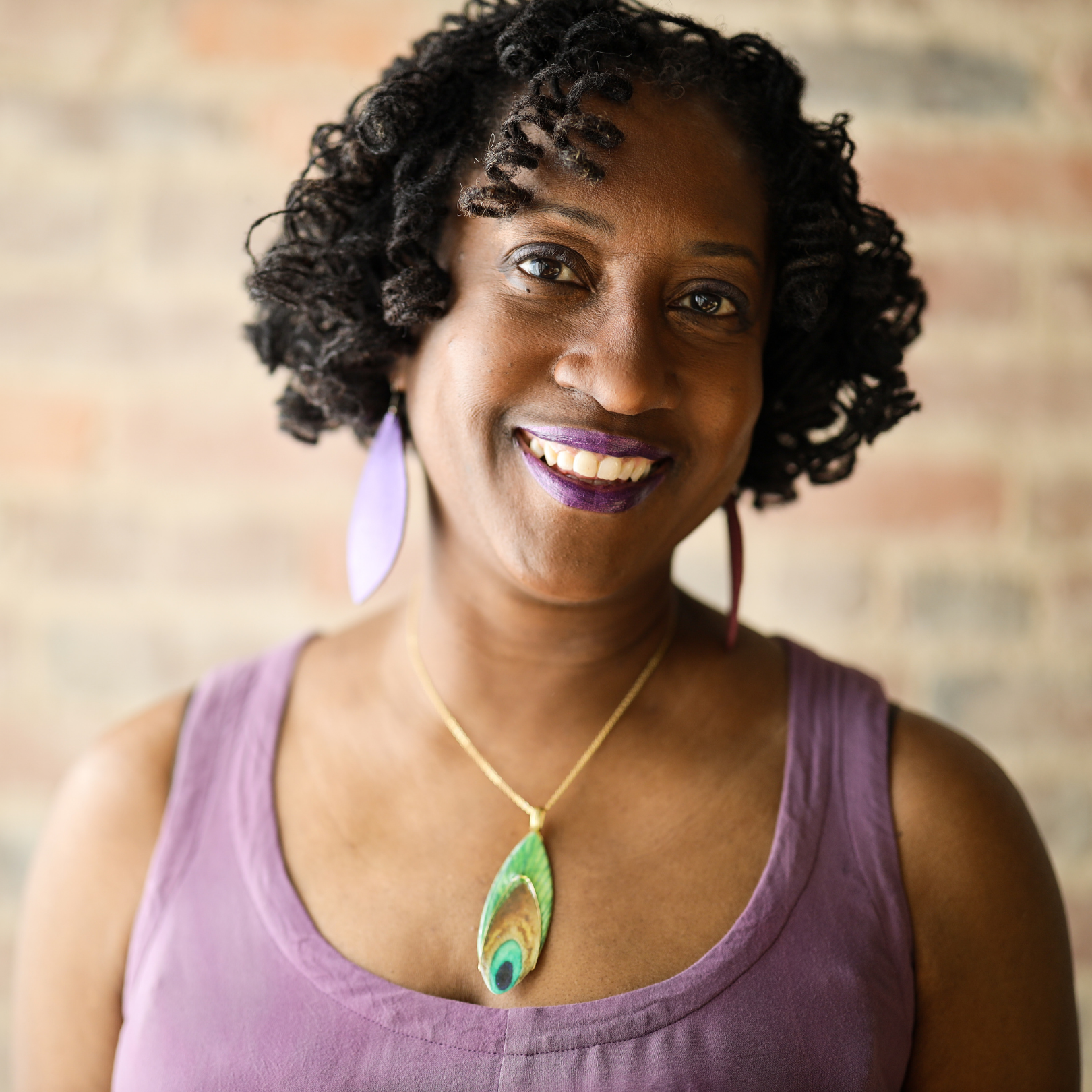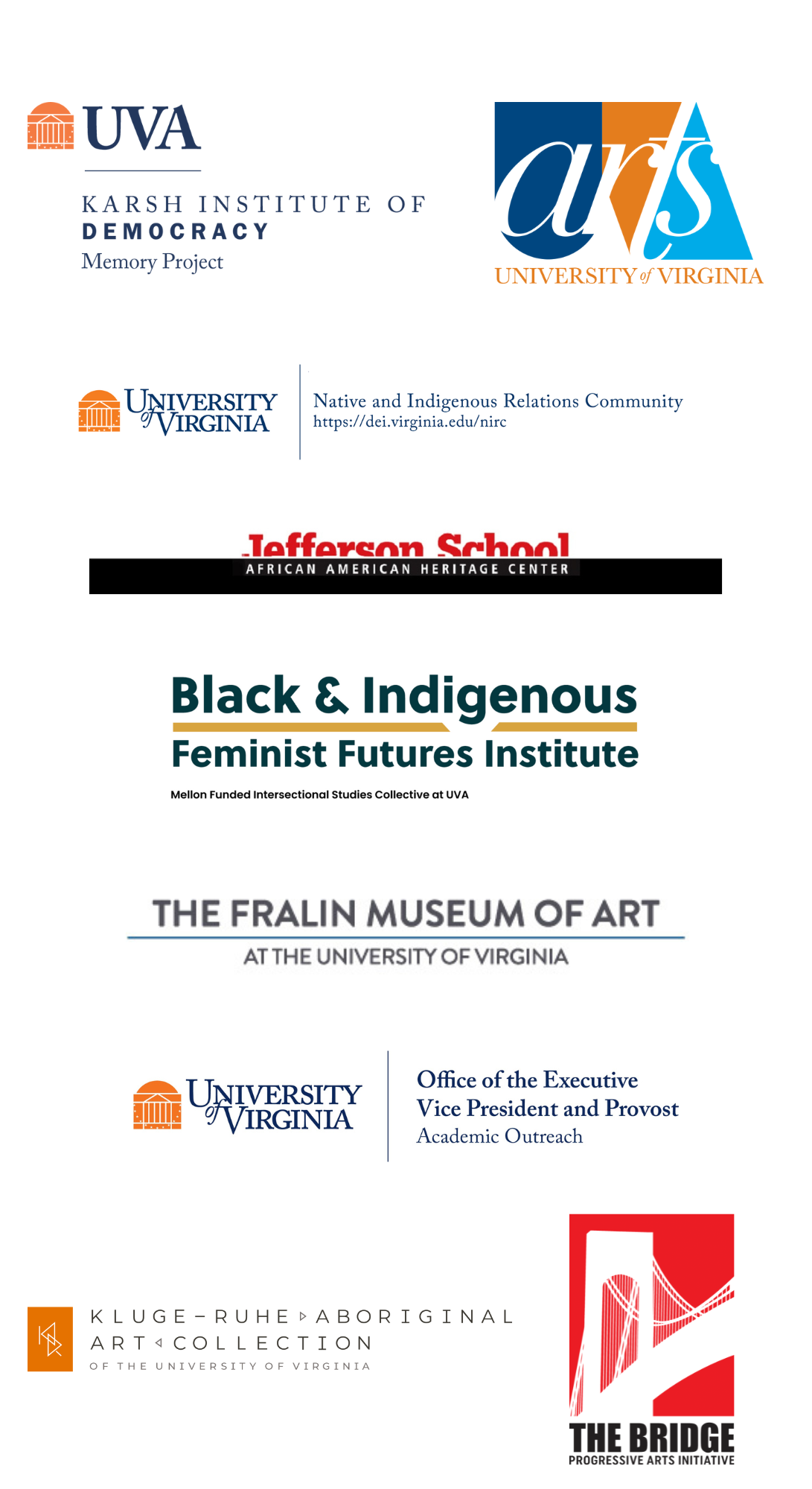Advanced registration is closed; the event is full.
On Saturday, February 17, New City Arts hosts a free, one-day symposium at The Jefferson School African American Heritage Center organized by Meesha Goldberg with local artists, community leaders, and the descendants of Sacajawea, inquiring into the diverse ways we memorialize the past in service of social transformation in the wake of the 2021 removal of Charlottesville’s monuments.
ASL interpretation will be provided.
Symposium Schedule
At The Jefferson School African American Heritage Center (233 4th St NW, Charlottesville, VA 22903)
9:00 AM: Check-In; Coffee and breakfast provided by JBird Supply and bakernobakery (gluten-free and vegan options available).
9:30-10:50 AM: Session 1 | Keeping Legacy & Culture Through the Generations (Rozina George & Zahnive George in conversation with Teresa Pollak): Descendants of Sacajawea will share their experiences as legacy keepers of their iconic relative, their history with the Charlottesville monument, and their ideas on how culture can carry forward essential stories and values for future generations.
10:50 AM: Coffee break
11:00-12:15PM: Session 2 | Memory, Imagination, Change (Marisa Williamson, Andrea Douglas, Meesha Goldberg; moderated by Lisa Woolfork): Artists and community leaders will present recent creative projects and inquire into how creative imagination may empower social transformation.
12:15-1:30 PM: Lunch provided by Pearl Island Catering
At New City Arts’ Welcome Gallery (114 3rd St. NE, Charlottesville, VA 22902)
2:00-3:00PM: Artist-led, guided exhibition tour of Empire is Over: The Lewis, Clark, & Sacajawea Cut-Ups by Meesha Goldberg at New City Arts’ Welcome Gallery.
About the Speakers
Rozina George is a great, great, great niece of Sacajawea and a co-founder of the Sacajawea Interpretive Center in Salmon, Idaho. Ms. George has been a consultant on documentary films, a peer reviewer on books on Sacajawea and the Lemhi Shoshones, and participated in numerous dedications to Sacajawea.
She has worked on projects relating to the Shoshone language. She was instrumental in the plague ceremony honoring Sacajawea in Charlottesville in 2009 and will oversee a project to restore Chief Tendoy’s monument in Idaho. As a Lemhi Shoshone, Ms.George comes through the lineage of Lemhi Chiefs, Chief Cameahwaite, Chief Snagg, and the last leader of the Lemhis, Chief Tendoy.
Zahnive George is a traditional Native flutist, a jingle dancer, and a Native craft artist. George is a familial descendant of Sacajawea and a Lemhi Shoshone. She descended from prominent Shoshone chieftains, Chief Cameahwaite, Chief Snagg, and Chief Tendoy. George is a counselor for people in need.
Teresa R. Pollak is an enrolled Citizen of the Monacan Nation. She has served several terms on the Tribal Council and as Secretary. She was a board member of the following organizations VITAL (Virginia Tribal Alliance for Life), VINSHE (Virginia Indian Nations Summit on Higher Education), VTEC (Virginia Tribal Educational Consortium), participated on various committees at UVA advocating for native and indigenous students. She is passionate about cultural revitalization and higher education for the children of her nation.
Meesha Goldberg is a Korean American artist, poet, gardener, and activist living in Virginia. She has exhibited her artwork in galleries across the country with solo shows in Los Angeles, Seattle, Portland, and Charlottesville. Her current exhibit “Empire is Over” at New City Arts’ Welcome Gallery is a confrontation with the vacant site of the Lewis, Clark, and Sacajawea monument and history to memorialize the brutality of empire. Her art crosses the boundaries of genre to both experience and express transformational repair. Performance, ritual, painting, film, costume, and poetry merge in durational, place-based works and gallery installations that insist upon the re-enchantment of the world. Her debut poetry collection “The Seed is Waiting in the Dark” is forthcoming in 2024 through Finishing Line Press.
Marisa Williamson is a project-based artist who works in video, image-making, installation and performance around themes of history, race, feminism, and technology. Her work has been featured in exhibitions throughout the US, as well as Rome, Berlin, Switzerland, and Buenos Aires. She was a participant in the Skowhegan School of Painting & Sculpture in 2012 and the Whitney Museum’s Independent Study Program in 2014-2015. Williamson holds a BA from Harvard University and an MFA from CalArts. She is an Assistant Professor of Visual Art at the University of Virginia with a research focus on Blackness.
Dr. Andrea Douglas holds an M.A. and Ph.D. in art history from the University of Virginia and an M.B.A. in arts management and finance from Binghamton University, NY. Douglas has taught graduate and undergraduate classes in African American, contemporary, and art theory, and has published exhibition catalogues and scholarly articles. From 2004 -2010 she was Curator of Collections and Exhibitions and Curator of Contemporary Art at the University of Virginia Art Museum.
In 2020, Douglas was appointed to the Governor’s Commission to Study Slavery and Subsequent De Jure and De Facto Racial and Economic Discrimination. She is also the co-chair of the President’s Commission on the Age of Segregation at the University of Virginia and sits on Monticello’s Advisory Committee on African American Affairs as well as the state’s History of Lynching in Virginia Working Group. She has served on the City of Charlottesville Blue Ribbon Commission on Race, Monuments and Public Spaces, the University of Virginia’s President’s Commission on Slavery at the University and was chair of the city’s PLACE Design Task Force.
Dr. Lisa Woolfork is an associate professor of English at the University of Virginia, where she specializes in African American literature and culture. She is also the founder of Black Women Stitch, the sewing group where Black lives matter. She is also the host and executive producer of Stitch Please, a weekly audio podcast centering Black women, girls, and femmes in sewing.
She is currently a Community Engaged Teaching Scholar. In that capacity, she and Tobiah Mundt, a founding member of the Charlottesville Black Arts Collective, are offering Sally Hemings University Connecting Threads, a 5000-level course. This radical study and creative enterprise is deeply curious about knowledge production, vernacular archiving, and the work of public memory while also extending the conversation about Black aliveness to encompass aspects of art and craft as pedagogy. The course explores the curricular and cultural consequences of re-imagining study, public memory, and our community.
Visionary Remembering is hosted by New City Arts and supported by The Memory Project at UVA’s Karsh Institute of Democracy, UVA Arts, The Native and Indigenous Relations Community at UVA and Dean’s Fund for the Democracy Initiative, The Black & Indigenous Feminist Futures Institute, The Jefferson School African American Heritage Center, The Fralin Museum of Art at UVA, The Office of the Vice Provost for Academic Outreach, The Kluge-Ruhe Aboriginal Art Collection of the University of Virginia, The Bridge PAI, UVA Program in Linguistics, and the UVA Department of Anthropology.


